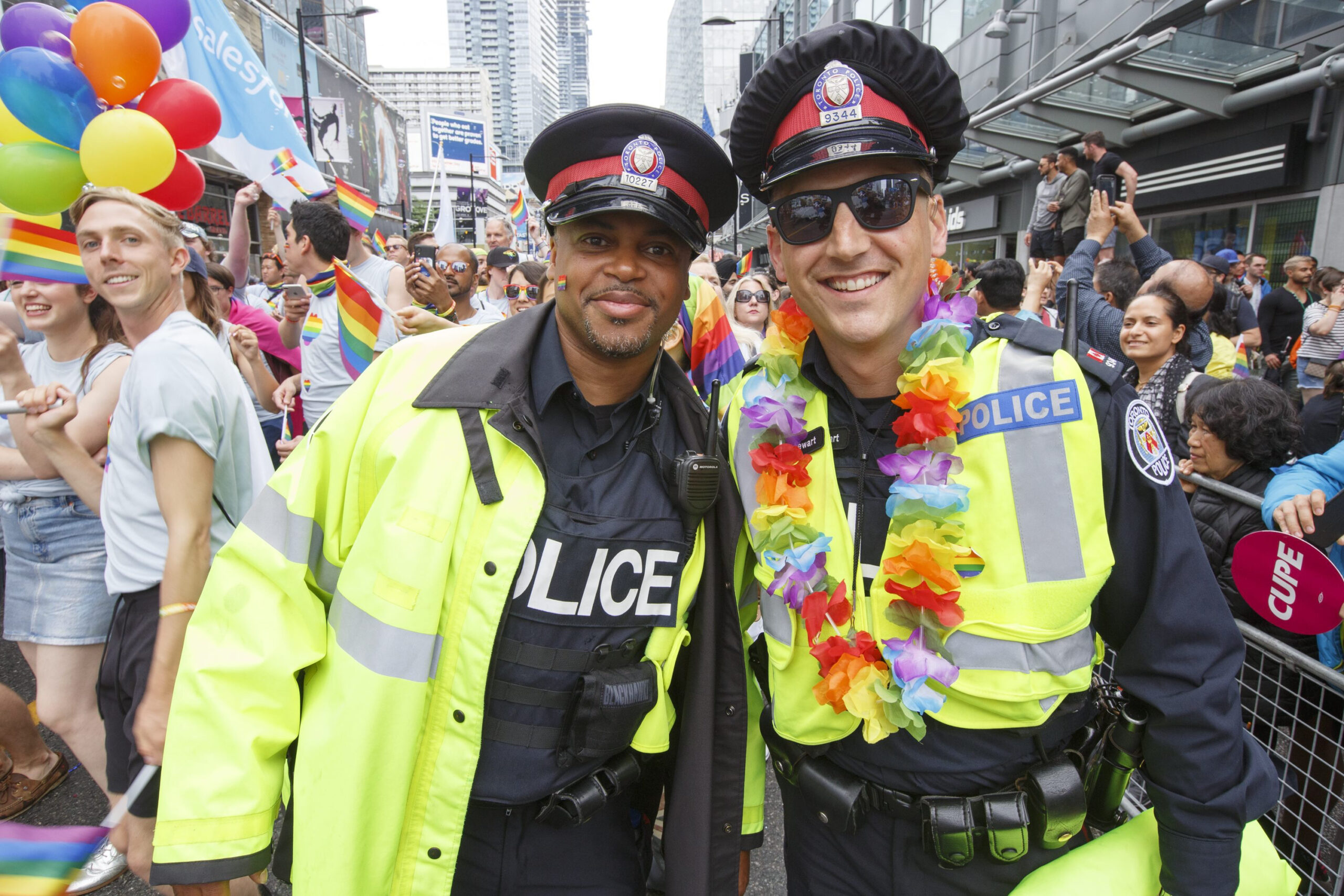I do not need to explain to you why the Toronto police should not march in Pride.
You are a decent, rational, compassionate person. You of course recognize that, the individual foibles and allowances of individual officers aside, the Toronto police have been the historical, habitual and ongoing antagonists of Toronto’s LGBT community.
Perhaps you remember Operation Soap, the malicious bathhouse raids that destroyed people’s lives — and subsequently triggered Toronto’s first Pride march as a passionate anti-police protest. If not, you still know about the decades of harassment and attempts to destroy the village’s institutions like the Glad Day Bookshop. You probably saw the footage of HIV-phobic insults hurled at a homeless person in the village. You likely remember 2016’s Project Marie, which descended on anonymous and closeted men in a park and publicly humiliated them in droves. You certainly saw the cheerful police photo op just a few weeks ago with neo-Nazi mayoral candidate Faith Goldy.
You know about the people we lost while begging the police to do something for decades, though perhaps their names escape you; there are, after all, so many of them: Majeed Kayhan, Selim Esen, Skandaraj Navaratnam, Andrew Kinsman, Dean Lisowick, Soroush Mahmudi, Abdulbasir Faizi, Kirushna Kanagaratnam. The decades of grisly cold cases, now reopened, despite the mockery they once gave us for suggesting there was a killer; the blame the police chief tried shifting to us when the killer was caught too late.
Alloura Wells, left to rot in a morgue while her community searched everywhere. Tess Richey, left in an alley stairwell for her mother to find.
You’re not a monster.
To demand an abuse victim to stand and smile with their abuser is an act of cruelty and an obscenity contrary to every ethos of restorative justice. Philosopher Hannah Arendt, writing about Christ and the Jewish capacity to forgive their oppressors after the Second World War, noted forgiveness is only possible if and when the perpetrator stands in the victim’s power to be punished if they so choose.
“It is therefore quite significant, a structural element in the realm of human affairs, that we are unable to forgive what we cannot punish and are unable to punish what has turned out to be unforgivable,” she wrote.
Arendt also stressed that you cannot forgive on behalf of another. Forgiveness is neither given nor received communally — the wrong you have done must be addressed by the wronged and not the enablers of the perpetrator.
No inquiry has taken place. No police chief has stepped down. The Toronto police have never been placed in a position to be punished for their actions, and so they cannot be forgiven them.
Nothing has changed.
You cannot ask the oppressed to forgive their oppressor while a boot is still upon their neck. That is coercion and collaboration, not forgiveness.
So I do not need to explain to you why the Toronto police should not march in Pride. It is obvious to everyone with a soul.
What I may need to explain to you, however, is why they want to.
The answer is power.
When I was a little boy, I was bullied in the first grade. I was small, and gentle and shy. He was larger than me, older than me, and cruel. He was fond of making a spectacle of his torments and framing them as something I deserved — that my shyness and fear of engaging were themselves the reason I deserved it.
For a year he made me miserable. I remember him tearing through some small paper dinosaur dolls I had arranged — they were in the way, he said, and too fragile. I shouldn’t have put them there. It was my fault.
The cruelest thing he would do, however, was insist he was my dearest friend. I don’t even remember his name, but I remember the recess monitor asking if I was okay and him pulling me suddenly close and piping up, “We’re fine! We’re best friends, aren’t we, Tony?”
I remember him snuggling my face next to his and beaming brightly at her.
I’ve never forgotten that sickly-sweet falseness, the violating way he made me a prop in my own humiliations, or his desperation in that moment and his gleeful triumph that it worked.
This is the favourite violence of the abuser: to make you watch as other people insist it is okay; to make you hold their hand in public and grin at the people whom you frantically wish would help you. Wave to the people, honey.
It is no longer fashionable to break a faggot’s skull with your billy club. It is no longer regarded as good police work to warn the crowds that the man being beaten “probably has AIDS.” White people are dying now; children are dying now. There are too many people watching, too many cameras filming.
A flurry of violent movement — only a momentary frenzy that registers deeper, longer, crueler torments — has caught the public eye.
For just a moment, the recess monitor is watching.
We’re best friends, aren’t we?


 Why you can trust Xtra
Why you can trust Xtra


